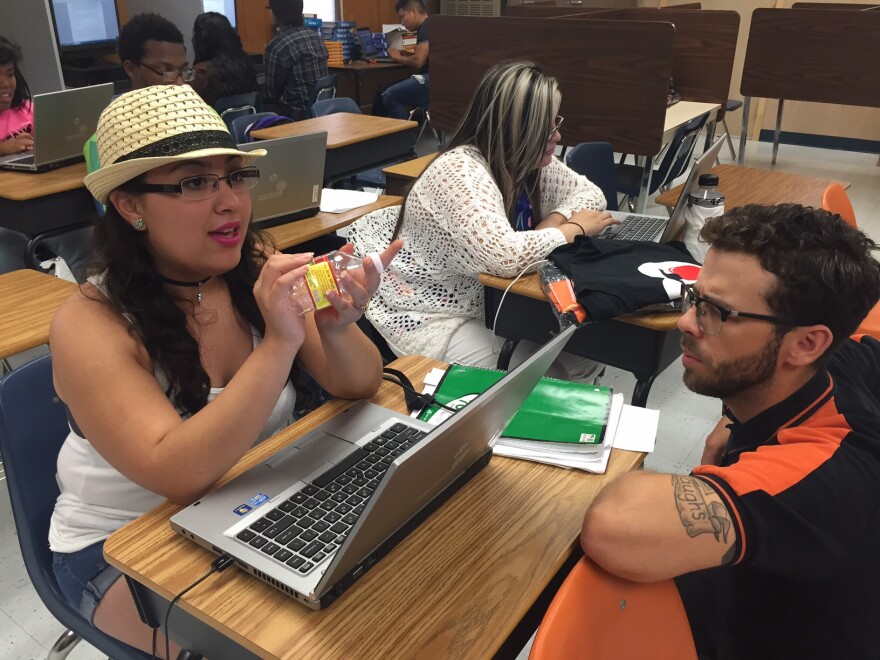Over the next few days, thousands of young Texans will receive their diplomas. Some of those students squeaked by thanks to a new state law. High schoolers no longer have to pass all five end-of-course exams to graduate.
Before students walk the stage, though, one school in Fort Worth scrambled to meet the new rules.
Principal Josh Delich said the rush began at Polytechnic High even before the governor signed Senate Bill 149. They pulled teachers out of classrooms, they prepped counselors and built the individual graduation committees required by the law.
The process made Delich look at education through a different lens.
“Not everybody is exceptionally good at standardized tests with pencil and paper, but it doesn’t mean they aren’t exceptional learners,” he says. “Just for whatever reason, they may struggle with that aspect of an assessment.”
An elaborate set of hurdles
Here’s how the new law works: A student only has to pass three of the five STAAR tests. Then comes an elaborate set of hurdles -- a special project, completing all classwork and getting the approval of a personalized committee.
Three of every four students who haven’t passed all of the STAAR tests are eligible for this grueling process, which is almost 17,000 students across the state. Fort Worth and many other districts got this done before graduation. Dallas is waiting until summer.
Critics say this is just a way to push kids out the door. Michael Sorum, deputy superintendent in Fort Worth, disagrees.
“We did take it very seriously and we didn’t want to just pass kids through,” he says. “We wanted them to work for it and to demonstrate that they have indeed mastered those skills that they need.”
A second path to a diploma
At Polytechnic High, 29 students were eligible to do the extra work and take another stab at graduating. Many spent the past couple of weeks working on their projects in a separate classroom.
Principal Delich walks around the classroom talking to different students.
“Have you been able to learn some English strategies in terms of the editing, the writing process, the things that are sometimes covered on the test that are now in the project?” he asks Fernanda Zarrarz.
She’s one of the 23 students who made it. Like many in this group, English wasn’t her first language.
“Do you like this assessment better or do you like this one better?” Delich asks.
“I like this one because we have more time, Fernanda tells Delich. “The test we didn’t really have a lot of time. We had to do the writing and then the reading, and it was really stressful. ”
Fernanda, who’s 17, came to the U.S. six years ago. She failed both English STAAR exams and had to write two essays to qualify. One was about her grandfather. Writing it was an emotional experience she embraced.
“I didn’t grown up with my parents,” she says. “I grew up with my grandpa because my sister passed away. When she passed away, I didn’t really have my mom to be with me. In that moment, the only person I had next to me was my grandpa. He raised me like I was his own daughter … he would always be there next to me helping me out, tell me, “Mija, you gotta follow your dream. Don’t make no one stop you. You always gotta look ahead.”
And tomorrow afternoon, she will stride across the stage at Will Rogers Auditorium.
The diploma she picks up, she’ll hand to her grandfather.





